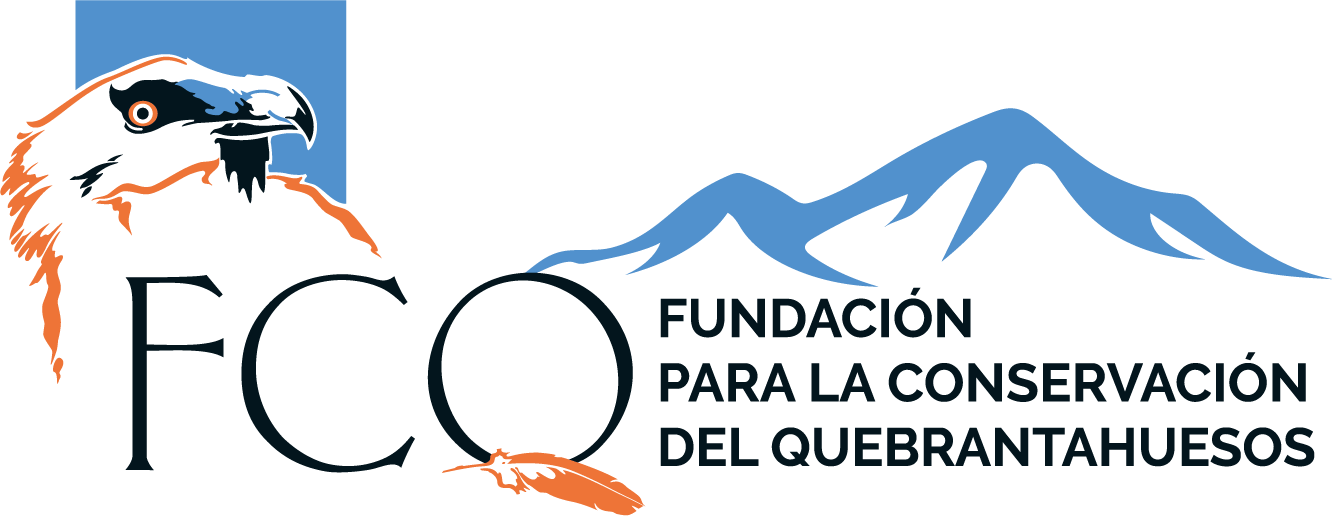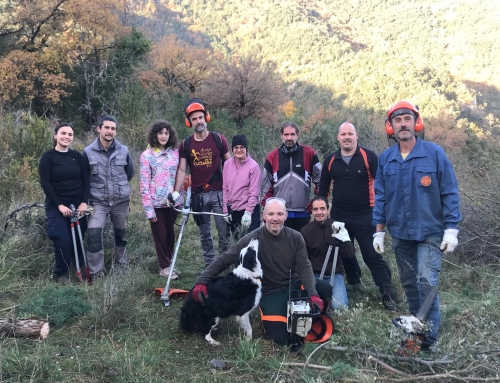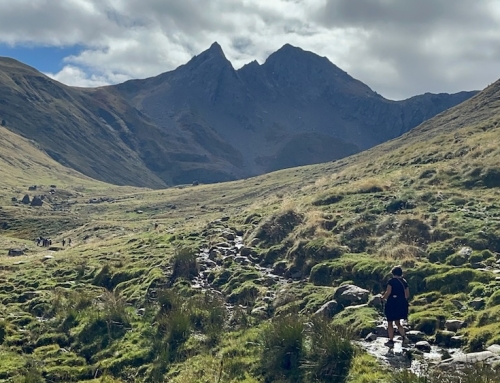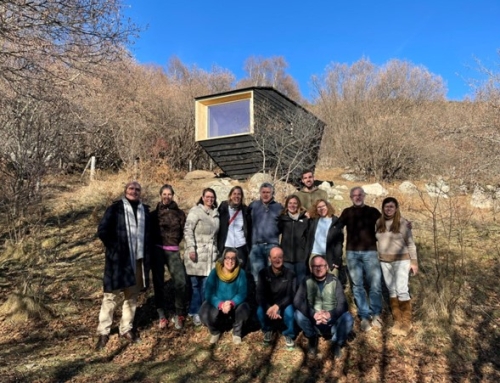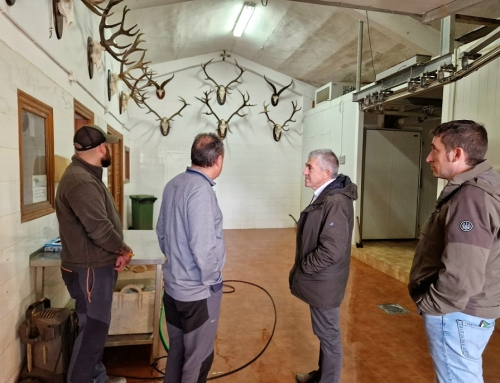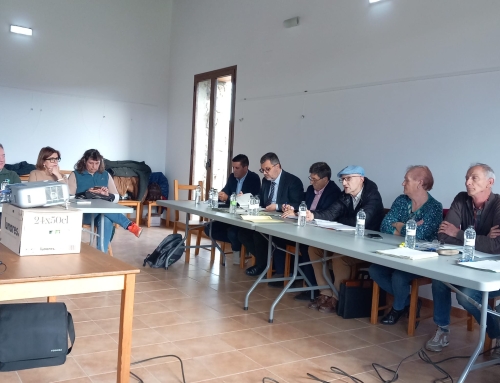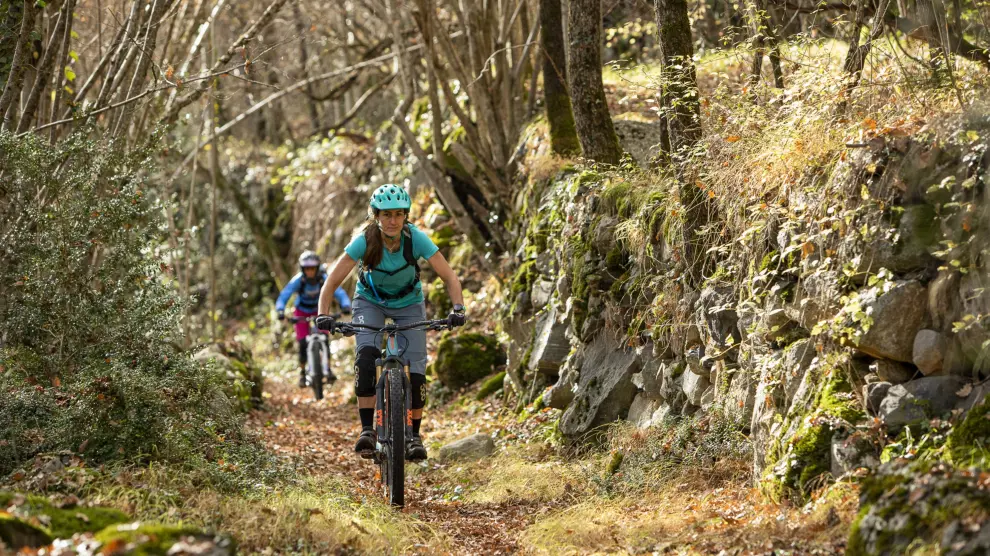
A visitor between 35 and 49 years old who seeks nature, the profile of the ecotourist.
María Victoria Sanagustín, dean and professor of the master’s degree in tourism at the Huesca Campus, reviews the potential of the province.
A person between 35 and 49 years old, with higher education, job, traveling as a couple and without children. This is the predominant profile of the resident ecotourist in Spain, according to the latest data from the report of the Ecotourism Observatory at national level. A choice in which 69% visit the destination for the first time attracted by the natural space (52.1%); discover and observe nature (41.1%) or rest and relax in it (30.6%). But what are we talking about when we refer to ecotourism? The dean of the Faculty of Business and Public Management and professor of the Master’s Degree in Tourism at the Huesca Campus of the University of Zaragoza, María Victoria Sanagustín, defines it as “a tourism product developed in protected natural areas in collaboration with companies in the sector that are accredited for their sustainable management”, a field regulated in 2024 within the framework of the Integral Rural Tourism Plan developed by the Ministry of Industry, Energy and Tourism. Although the definition of the World Tourism Organization, adds the point that the essential motivation for the visitor is to “observe, learn, discover and appreciate” the biological and cultural diversity with a responsible attitude. This is a type of tourism that in the province of Huesca accounted for 25% of visits and 30% of tourist spending, according to data from the Obervatorio de Turismo Sostenible de Aragón in 2022, contributing to rural development through the generation of thousands of jobs. For Sanagustín, Huesca is one of the provinces with the greatest ecotourism offer: “We have a very extensive geographical territory and rural localities that maintain certain customs, uses and traditions that are exemplary“. The dean distinguishes between public, private, associative and joint actions. Broadly speaking, she points out the Cultural Parks, those that are characterized by their rich heritage and are integrated within “a physical framework of singular landscape and/or ecological value. Of the seven in Aragon, Sanagustín explains, three of them are located in the province of Huesca: the Cultural Park of the Benasque Valley, the Vero River and San Juan de la Peña”. On the other hand, the professor highlights the three-fold promotion carried out by the promoter TuHuesca: environmental, social, cultural and economic. In the private sector, she highlights the work of small artisans, stores that offer local products, zero kilometer restaurants, charming rural hotels and rural houses that are distributed throughout the province and that also respect the principles of social, environmental and sustainability responsibility.
An example of this, the professor cites, are the businesses that develop around the Ordesa and Monte Perdido National Park and the Sierra de Guara. Thirdly, it highlights the role of associations such as the Foundation for the Conservation of the Bearded Vulture, the Green and Rural Tourism Association of Huesca or Faratur in the promotion of this type of sustainable tourism.
What does the visitor demand?
As corroborated by the report, the most popular activities are guided tours in natural areas, with an increase of 61%, and wildlife observation (41%), which is the option that has grown the most since 2022, now accounting for twice as much and even surpassing sports activities. Interest in gastronomic tourism is also growing. An opportunity in which Huesca has a lot to say and that institutions such as the Provincial Council are responsible for promoting, in events such as Fitur. where this year the potential of pastry has been presented. “It is incredible the level and quality of our global gastronomic offer. It’s something we should be very proud of,” she maintains. The dean points to nature activities such as hiking, mountain biking, bird watching or cultural experiences such as charming villages, tasting of local products, as well as ecological lodging and gastronomic tourism as the main trends. She also points out as main challenges for the sector the need to differentiate itself in the face of the increase in supply, the adaptation to new technologies and the professionalization of the sector.
Lines of research
The Huesca campus within the Master’s Degree in Tourism, with the support of the DPH, has several lines of research open. Among them, the one carried out by the professor of the University of Zaragoza Isabel Castillo, focused on land stewardship, “a tool that contemplates private management in the conservation of the environment with the aim of creating a positive synergy between tourism, biodiversity and conservation“. There is also ongoing research on rural tourism, astro-tourism, the social impact of the sector and the digitalization of supply.
Source:
